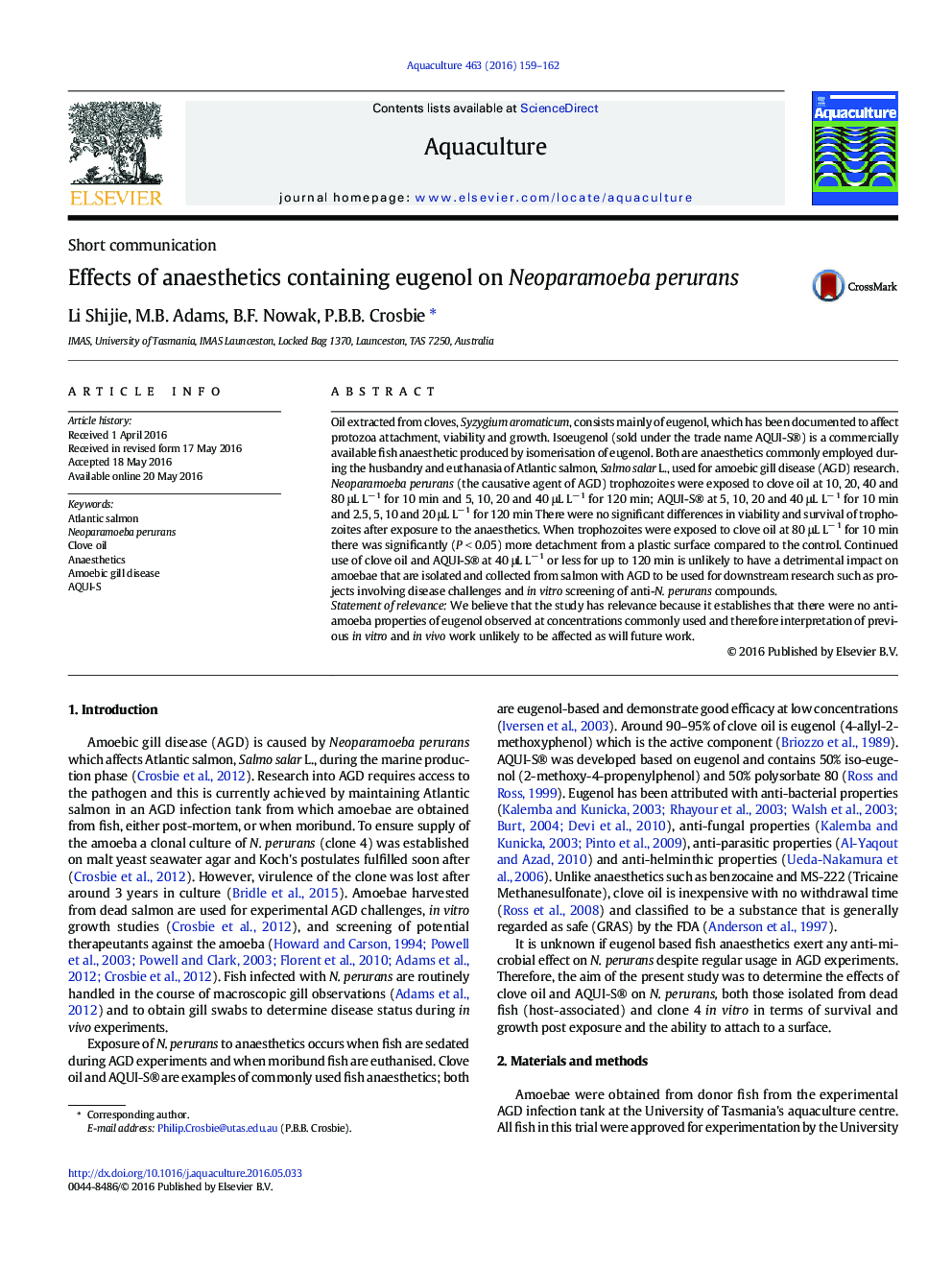| کد مقاله | کد نشریه | سال انتشار | مقاله انگلیسی | نسخه تمام متن |
|---|---|---|---|---|
| 2421331 | 1552824 | 2016 | 4 صفحه PDF | دانلود رایگان |
• Anti-protozoa properties of eugenol were not observed at concentrations commonly used.
• Interpretation of previous in vitro work unlikely to be affected
• Anaesthetic concentrations suitable for future work established
Oil extracted from cloves, Syzygium aromaticum, consists mainly of eugenol, which has been documented to affect protozoa attachment, viability and growth. Isoeugenol (sold under the trade name AQUI-S®) is a commercially available fish anaesthetic produced by isomerisation of eugenol. Both are anaesthetics commonly employed during the husbandry and euthanasia of Atlantic salmon, Salmo salar L., used for amoebic gill disease (AGD) research. Neoparamoeba perurans (the causative agent of AGD) trophozoites were exposed to clove oil at 10, 20, 40 and 80 μL L− 1 for 10 min and 5, 10, 20 and 40 μL L− 1 for 120 min; AQUI-S® at 5, 10, 20 and 40 μL L− 1 for 10 min and 2.5, 5, 10 and 20 μL L− 1 for 120 min There were no significant differences in viability and survival of trophozoites after exposure to the anaesthetics. When trophozoites were exposed to clove oil at 80 μL L− 1 for 10 min there was significantly (P < 0.05) more detachment from a plastic surface compared to the control. Continued use of clove oil and AQUI-S® at 40 μL L− 1 or less for up to 120 min is unlikely to have a detrimental impact on amoebae that are isolated and collected from salmon with AGD to be used for downstream research such as projects involving disease challenges and in vitro screening of anti-N. perurans compounds.Statement of relevanceWe believe that the study has relevance because it establishes that there were no anti-amoeba properties of eugenol observed at concentrations commonly used and therefore interpretation of previous in vitro and in vivo work unlikely to be affected as will future work.
Journal: Aquaculture - Volume 463, 1 October 2016, Pages 159–162
